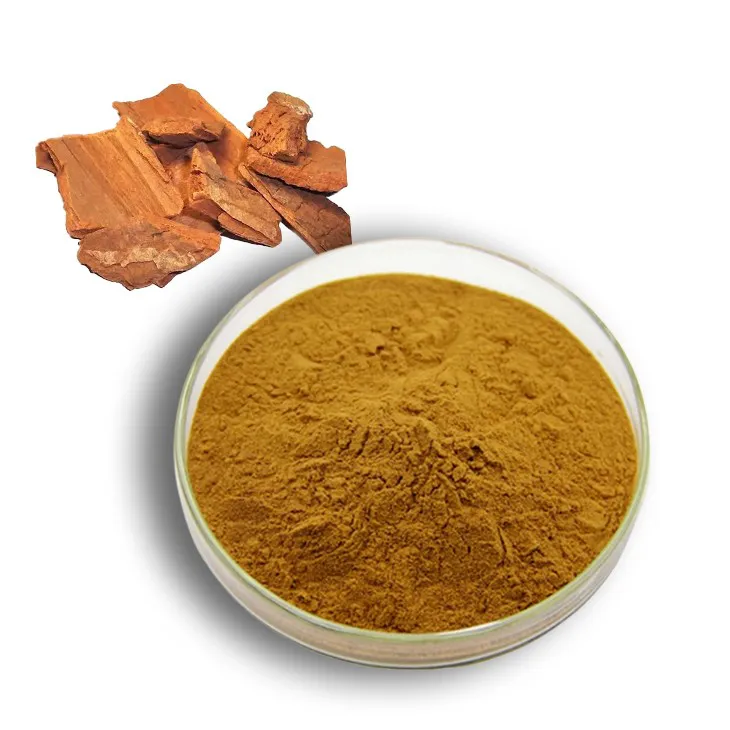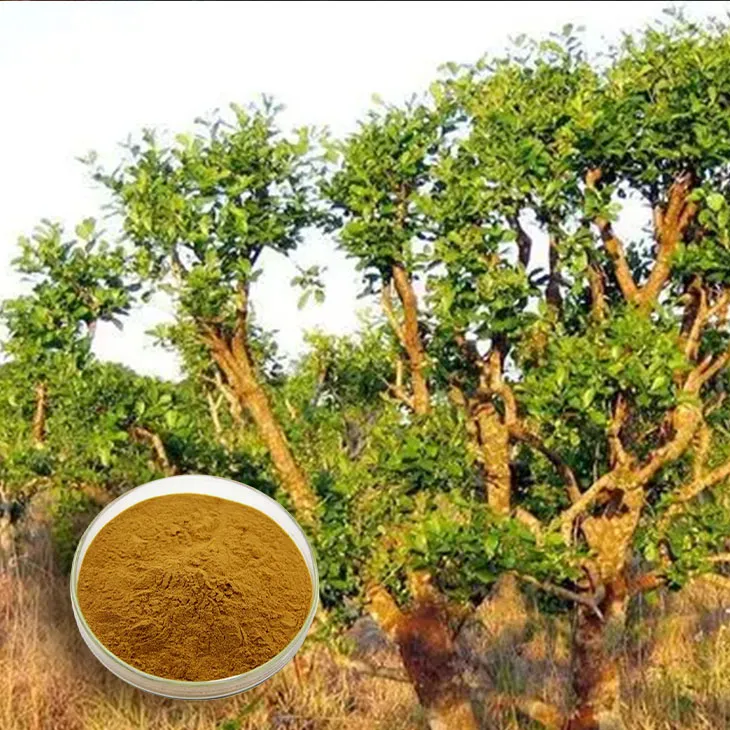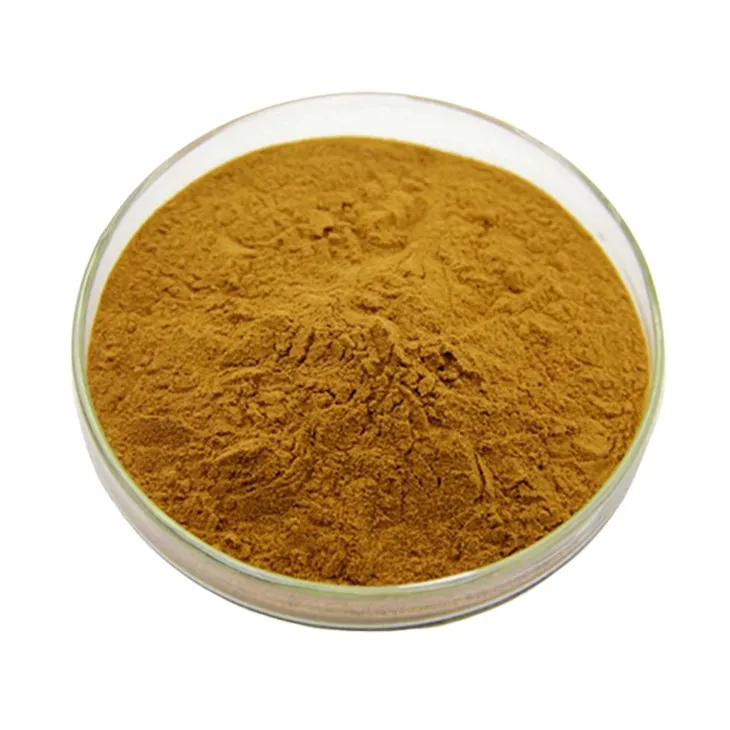- 0086-571-85302990
- sales@greenskybio.com
Yohimbine bark extract can reduce high blood pressure.
2024-11-12

1. Introduction
Hypertension, or high blood pressure, is a prevalent and significant health concern worldwide. It is a major risk factor for various cardiovascular diseases, including heart attacks, strokes, and heart failure. Yohimbine Bark Extract has emerged as a potential agent in the management of hypertension. Yohimbine is an alkaloid derived from the bark of the Pausinystalia johimbe tree, native to Central and West Africa. This extract has been traditionally used for various medicinal purposes, and recent scientific research has started to explore its role in blood pressure regulation.

2. Biochemical Actions of Yohimbine Bark Extract
2.1. Effect on Neurotransmitters
One of the key aspects of how Yohimbine Bark Extract may influence blood pressure is through its effect on neurotransmitters. Yohimbine is known to be an alpha - 2 adrenergic receptor antagonist. In the context of blood pressure control, this action has important implications. Normally, alpha - 2 adrenergic receptors play a role in modulating the release of norepinephrine, a neurotransmitter involved in the regulation of blood pressure. When yohimbine blocks these receptors, it can lead to an increase in norepinephrine release in certain areas of the body.
However, this seemingly counterintuitive increase in norepinephrine release can actually have a beneficial effect on blood pressure in some cases. The increased norepinephrine may stimulate beta - adrenergic receptors in the heart, leading to an increase in heart rate and cardiac output. But at the same time, it can also cause dilation of blood vessels in some peripheral tissues. This dilation helps to reduce the resistance in the blood vessels, which is a crucial factor in determining blood pressure. Overall, the net effect on blood pressure can be a reduction, depending on the balance between the various physiological responses.
2.2. Interaction with the Renin - Angiotensin - Aldosterone System (RAAS)
The renin - angiotensin - aldosterone system is a key hormonal system involved in blood pressure regulation. Yohimbine bark extract may also interact with this system. There is evidence to suggest that yohimbine can influence the release of renin, an enzyme that plays a central role in the RAAS. By affecting renin release, yohimbine can potentially disrupt the normal cascade of events in the RAAS, which may lead to a decrease in blood pressure.
For example, if yohimbine inhibits the excessive activation of the RAAS, it can prevent the over - production of angiotensin II, a potent vasoconstrictor. This reduction in angiotensin II levels can then lead to relaxation of blood vessels and a subsequent decrease in blood pressure. Additionally, by interfering with the RAAS, yohimbine may also have an impact on aldosterone levels. Aldosterone is a hormone that regulates sodium and water reabsorption in the kidneys. By modulating aldosterone, yohimbine can affect fluid balance in the body, which is another important factor in blood pressure control.

3. Physiological Actions of Yohimbine Bark Extract
3.1. Vascular Effects
Yohimbine bark extract has direct effects on blood vessels. As mentioned earlier, it can cause vasodilation in some peripheral blood vessels. This dilation is likely due to a combination of its actions on neurotransmitters and the RAAS. When blood vessels dilate, the cross - sectional area available for blood flow increases. This reduces the resistance to blood flow, and according to the basic principles of hemodynamics (blood pressure = cardiac output × peripheral resistance), a decrease in peripheral resistance can lead to a reduction in blood pressure.
Moreover, the vasodilatory effect of yohimbine may also be related to its impact on endothelial function. The endothelium, which lines the inner surface of blood vessels, plays an important role in regulating vascular tone. Yohimbine may enhance the release of endothelial - derived relaxing factors, such as nitric oxide. Nitric oxide is a powerful vasodilator that can relax the smooth muscle cells in the blood vessel walls, leading to dilation. By improving endothelial function and promoting nitric oxide release, yohimbine bark extract can contribute to the reduction of high blood pressure.
3.2. Cardiac Effects
On the cardiac side, the effects of yohimbine bark extract are complex. As mentioned, the increase in norepinephrine release due to yohimbine's action on alpha - 2 adrenergic receptors can lead to an increase in heart rate and cardiac output. However, this is not the only cardiac effect. Yohimbine may also have a direct impact on the heart muscle itself.
There is some evidence to suggest that yohimbine can improve the contractility of the heart muscle. This means that the heart can pump blood more effectively. While an increase in cardiac output initially might seem to be at odds with blood pressure reduction, in the context of the overall physiological responses, it can be part of a beneficial adaptation. The improved cardiac function can help to ensure that blood is distributed more efficiently throughout the body, and when combined with the vasodilatory effects on blood vessels, can ultimately lead to a reduction in blood pressure.

4. Research Data on Yohimbine Bark Extract and Hypertension
4.1. Animal Studies
Several animal studies have been conducted to investigate the effects of yohimbine bark extract on hypertension. In these studies, animals with experimentally induced hypertension were treated with yohimbine or a placebo. In many cases, the results showed that animals treated with yohimbine had a significant reduction in blood pressure compared to those in the placebo group.
For example, in a study on hypertensive rats, yohimbine treatment led to a decrease in both systolic and diastolic blood pressure. The researchers observed changes in the animals' vascular function and neurotransmitter levels, which were consistent with the proposed mechanisms of action of yohimbine. These animal studies provide valuable initial evidence for the potential of yohimbine bark extract in treating hypertension, but it is important to note that the results may not directly translate to humans due to differences in physiology between species.
4.2. Human Studies
There have also been some human studies exploring the use of yohimbine bark extract for hypertension. However, the data from human studies is more limited compared to animal studies. In some small - scale clinical trials, participants with mild to moderate hypertension were given yohimbine extract. The results were somewhat mixed.
Some studies reported a modest reduction in blood pressure in the yohimbine - treated group. However, other studies did not find a significant difference compared to the control group. The variability in the results may be due to several factors, such as differences in study design, dosage used, and the characteristics of the study participants. Additionally, the relatively small sample sizes in some of these studies may limit the statistical power to detect significant effects.

5. Potential Side - effects of Yohimbine Bark Extract
While yohimbine bark extract may have potential benefits in reducing high blood pressure, it is also important to consider its potential side - effects. One of the most commonly reported side - effects is an increase in heart rate. This is related to its effect on norepinephrine release and the subsequent stimulation of beta - adrenergic receptors in the heart. An increased heart rate can be a concern, especially in individuals with pre - existing heart conditions.
Another potential side - effect is anxiety. Yohimbine has been known to have an impact on the central nervous system, and in some cases, it can cause feelings of anxiety or restlessness. This may be due to its effects on neurotransmitters in the brain. Additionally, some individuals may experience gastrointestinal side - effects, such as nausea, vomiting, or abdominal discomfort. These side - effects can limit the tolerability of yohimbine bark extract, especially when used for long - term treatment.
There are also reports of elevated blood pressure in some individuals taking yohimbine. This may seem paradoxical given its proposed role in reducing hypertension. However, it is possible that in certain individuals, the complex interplay of its effects on neurotransmitters and the body's physiological systems can lead to an increase rather than a decrease in blood pressure. This further emphasizes the need for careful monitoring when using yohimbine bark extract for hypertension management.
6. Importance of Proper Dosage
The dosage of yohimbine bark extract is a crucial factor in its effectiveness and safety for treating hypertension. Determining the appropriate dosage is challenging due to the complex nature of its actions and the variability in individual responses.
Low dosages may not be sufficient to produce the desired blood pressure - lowering effects. On the other hand, high dosages are more likely to increase the risk of side - effects. In animal studies, different dosages have been tested, and it has been found that there is an optimal dosage range within which the blood pressure - lowering effects are maximized while the side - effects are minimized.
In human studies, the lack of consistency in results may in part be due to differences in the dosages used. It is important for future research to focus on identifying the optimal dosage for humans. Additionally, individual factors such as age, body weight, and overall health status should also be taken into account when determining the appropriate dosage. For example, elderly individuals or those with compromised liver or kidney function may require a lower dosage due to potential differences in drug metabolism and clearance.
7. Conclusion
Yohimbine bark extract shows potential in reducing high blood pressure through its biochemical and physiological actions on neurotransmitters, the RAAS, blood vessels, and the heart. However, the current research data, especially from human studies, is still somewhat limited and inconsistent. The potential side - effects of yohimbine, such as increased heart rate, anxiety, and gastrointestinal problems, need to be carefully considered. Moreover, the importance of proper dosage cannot be overstated, as it is crucial for both effectiveness and safety.
Further research is needed to fully understand the role of yohimbine bark extract in hypertension management. This includes larger - scale, well - designed human trials to better determine its efficacy, optimal dosage, and long - term safety. Until then, while yohimbine bark extract may hold promise as a natural alternative for hypertension treatment, it should be used with caution and under the supervision of a healthcare professional.
FAQ:
1. What is yohimbine bark extract?
Yohimbine bark extract is a substance derived from the bark of the yohimbe tree. It contains various bioactive compounds, and it has been studied for its potential effects on different physiological processes, including its role in relation to blood pressure.
2. How does yohimbine bark extract reduce high blood pressure?
Yohimbine bark extract may reduce high blood pressure through its influence on neurotransmitters involved in blood pressure control. It can interact with certain neurotransmitter systems in the body, potentially leading to vasodilation (widening of blood vessels), which in turn can help lower blood pressure.
3. What are the potential side - effects of using yohimbine bark extract for hypertension?
Potential side - effects of using yohimbine bark extract may include increased heart rate, anxiety, tremors, and elevated blood pressure in some cases (ironically, despite its potential to lower blood pressure in others). It may also cause digestive issues such as nausea and vomiting. However, these side - effects can vary from person to person depending on factors like individual sensitivity and dosage.
4. Why is proper dosage important when using yohimbine bark extract for hypertension?
Proper dosage is crucial when using yohimbine bark extract for hypertension. An incorrect dosage can lead to ineffective treatment or an increased risk of side - effects. Too low a dose may not produce the desired blood - pressure - lowering effect, while too high a dose can exacerbate side - effects, potentially causing more harm than good to the individual's health.
5. Is there enough research to support the use of yohimbine bark extract for hypertension?
While there is some research on the topic, more comprehensive and long - term studies are still needed. Some studies have shown promising results regarding the extract's potential to reduce high blood pressure, but the overall body of evidence is not yet fully conclusive. Further research is required to better understand its efficacy, safety, and optimal usage in the context of hypertension treatment.
Related literature
- The Effects of Yohimbine on Cardiovascular Function"
- "Yohimbine: Biochemistry, Pharmacology, and Therapeutic Applications in Hypertension"
- "Neurotransmitter Modulation by Yohimbine Bark Extract and its Implication for Blood Pressure Regulation"
- ▶ Hesperidin
- ▶ Citrus Bioflavonoids
- ▶ Plant Extract
- ▶ lycopene
- ▶ Diosmin
- ▶ Grape seed extract
- ▶ Sea buckthorn Juice Powder
- ▶ Fruit Juice Powder
- ▶ Hops Extract
- ▶ Artichoke Extract
- ▶ Mushroom extract
- ▶ Astaxanthin
- ▶ Green Tea Extract
- ▶ Curcumin
- ▶ Horse Chestnut Extract
- ▶ Other Product
- ▶ Boswellia Serrata Extract
- ▶ Resveratrol
- ▶ Marigold Extract
- ▶ Grape Leaf Extract
- ▶ New Product
- ▶ Aminolevulinic acid
- ▶ Cranberry Extract
- ▶ Red Yeast Rice
- ▶ Red Wine Extract
-
Aguaje Extract
2024-11-12
-
Alisma Extract
2024-11-12
-
Senna Leaf Extract
2024-11-12
-
Sugarcane Extract
2024-11-12
-
Konjac Powder
2024-11-12
-
Apricot Powder
2024-11-12
-
Polygonum multiflorum extract
2024-11-12
-
melatonin extract
2024-11-12
-
Wheat Germ Extract
2024-11-12
-
Curcumin
2024-11-12





















